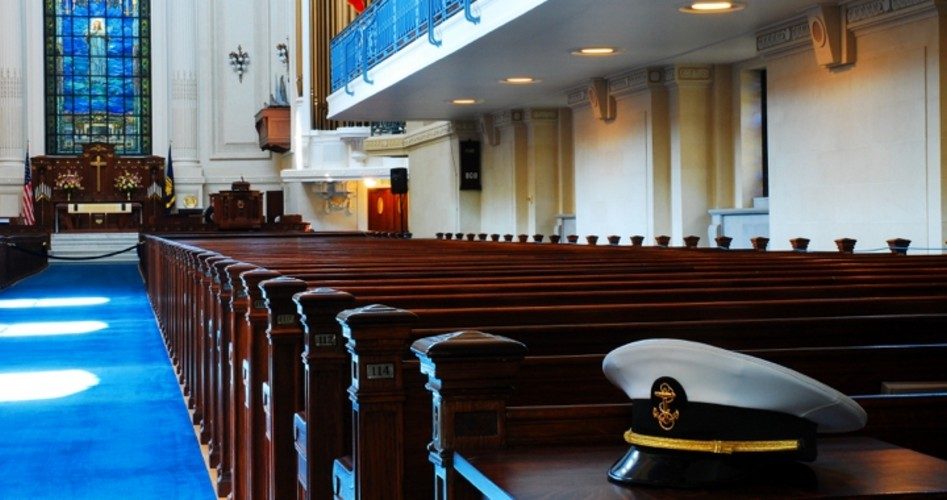
Following a major outcry from an army of U.S. senators and representatives, the U.S. Navy has rejected — for a second time — the application of a secular humanist (read: atheist) to serve as a Navy chaplain.
In 2014 Jason Heap, an Oxford-educated former youth minister, sued the Pentagon when his application to become a Navy chaplain was rejected after he revealed his plans to serve as a humanist/atheist. While a federal judge ultimately sided with the Pentagon’s rejection of the application, in 2017 Heap once again applied to be an humanist/atheist Navy Chaplain, and, incredibly, the Navy Chaplain Appointment and Retention Eligibility Advisory Group recommended that Heap be accepted into the chaplaincy program.
But when 20 U.S. senators sent a strongly worded letter to the Secretary of the Navy, followed by a similar letter from 40 U.S. representatives to the Chief of Navy Chaplains — each epistle admonishing against the ill-advised move — Navy brass reconsidered and on March 22 officially rejected Heap’s application.
“The very definition of the chaplaincy was at stake here, so I am relieved to see the Navy’s response,” said Rep. Doug Lamborn (R-Colo.), who penned the House letter. “Appointing a secular humanist or atheist chaplain would have gone against everything the chaplaincy was created to do.”
Lamborn pointed out that “an individual with an avowed opposition to religion itself cannot fulfill the mission and duties of a chaplain, no matter how accomplished the candidate may be.”
In pursuing a chaplain position the Oxford-educated Heap had boasted that “as both a humanist and a scholar of religion, I have a deep knowledge and understanding of world religions. My purpose and focus as a chaplain will be for holistic well-being of anyone who is in need of pastoral care.”
In the collective House letter, Lamborn reminded Rear Admiral Margaret Kibben, Chief of Navy Chaplains, that the military chaplaincy “was designed to facilitate the exercise of religious belief, not philosophical belief; this is the bright line that the Department of Defense must use in defining the boundaries of the chaplain corps.”
Similarly, in the letter he penned on behalf of the U.S. senators, Roger Wicker (R-Miss.) admonished Richard Spencer, Secretary of the Navy, and Admiral John Richardson, Chief of Naval Operations, that the Chaplaincy Corps “serves religious needs, not philosophical preferences. Approving a secular-humanist chaplain would open the door to other applicants representing other philosophical worldviews. Over time, this situation would erode the distinct religious function of the Chaplain Corps.”
In a statement after the Navy’s decision to deny Heap, Wicker said that “the Navy’s leadership has done the right thing. The appointment of an atheist to an undeniably religious position is fundamentally incompatible with atheism’s secularism. This decision preserves the distinct religious role that our chaplains carry out.”
Retired Army Chaplain Phil Wright of the Chaplain Alliance for Religious Liberty also applauded the Navy for rejecting Heap’s application, noting that “just by definition of his belief system he is hostile or antagonistic to religion and could not meet the religious needs of the men and women serving in the military. So, we were encouraged by the Navy’s decision to not approve.”
Rep. Vicky Hartzler (R-Mo.), one of the signers of the House letter, noted that the military chaplaincy program “is older than our country and was instituted by General Washington to meet the religious needs of his troops. This historic institution serves a vital purpose for today’s service members, ensuring the free exercise of religion for our soldiers, sailors, airmen, and Marines. I am pleased to hear that Navy has upheld the integrity of the chaplaincy.”
Photo: Kirkikis/iStock Editorial/Getty Images Plus


